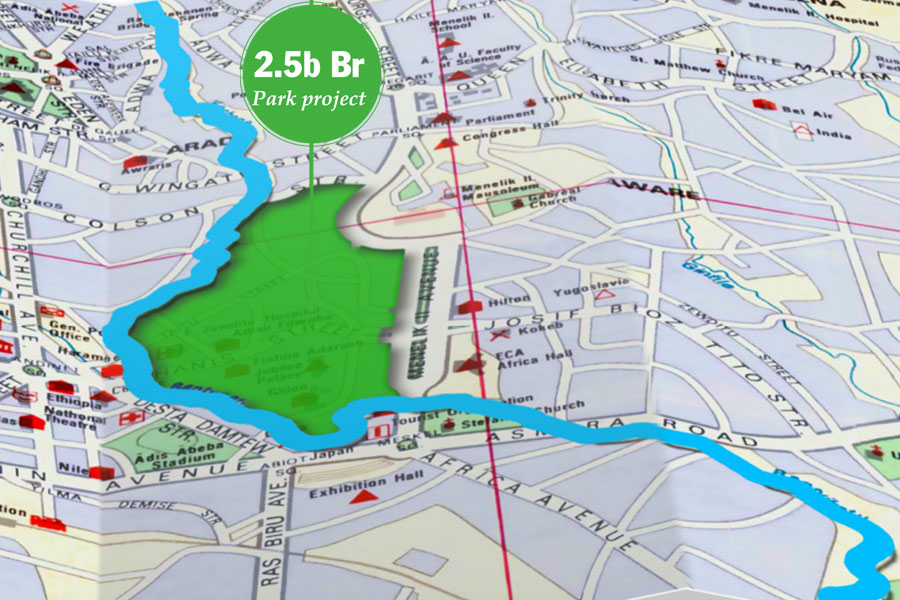
Radar | Oct 27,2024
Sep 4 , 2021
By Kidist Yidnekachew
Last week, while taking my 20-month-old son out for a walk inside of the condominium block compound where we live, I found myself saying, “no, don’t touch that” or “don’t pick that up” every other minute. Then I realised that each patch of grass in the compound was decorated with one of the following unsightly ornaments: used tissue paper, plastic bottles, biscuit wrappers and plastic bags.
Ironically, a few weeks ago, residents had come together to clean the compound. Anyone unable to partake was required to pay 30 Br. But all of their efforts must not have been enough because the compound was still covered with litter and the only thing different now was that the grass was cut.
This is a gated community; how can this much trash get here?
It could only have been residents that were disposing of their garbage in this manner on their walk from the compound door to their blocks and subsequent houses.
But how can a community fail to keep the compound where they live clean?
Then I remembered, there was not a designated trash disposing area where most residents know about; thus, most leave their trash outside but not in one place. There is also the issue of the biscuit wrappers, which children most likely threw away. Giving the children the benefit of the doubt in this instance is easy because they do not know any better. But we should blame the parents for not teaching them not to litter, the committee for the compound for not putting up trash baskets and the City Administration for the same offence on the streets of Addis Abeba.
The last statement may be protested by some, pointing out that there are outdoor garbage cans. Some even have fancy advertisements on them. But these are only found in the city's wealthier areas, where people are actually less likely to dispose of their rubbish in the street.
Behavioural science says that something done frequently becomes an unconscious action. If there are only trash cans in select locations, inhabitants are likely to litter even in the parts of town that have dustbins. I remember the countless times I had put wrapping papers and other similar trash in my bag because I could not find a dustbin nearby. My friends often laugh at me whenever they see I have put a used tissue paper or gum wrappers in a small packet in my bag. But, even for me, there were times when I was forced to throw out the trash on the road for lack of a dustbin and the amount of waste I refused to take home with me.
The most troubling aspect of all this is visible to anyone that has observed an area close to a school compound. The school day ends, and the students come out to a hot afternoon. They come across the friendly neighbourhood ice lolly saleswoman and buy the frozen delight for their walk to a taxi service. When they are done with their ice lolly, they throw out the stick or the plastic that came with it on the ground. We now have an entire new generation to replace the older littering generation.
There is a sanitation tax most of us pay, such as when paying the water bill, every month for the city to provide a decent living for its residents in terms of a cleaner city. Some of this needs to go to investing in wastebaskets. There are commendable efforts in this, including investing in local businesses to set them up and where they, in exchange, get to advertise. But there is minimal scaling up of this, even in Addis Abeba.
PUBLISHED ON
Sep 04,2021 [ VOL
22 , NO
1114]


Radar | Oct 27,2024

Radar | Feb 23,2019

Radar | Jul 11,2021

Commentaries | Oct 28,2023

Advertorials | Sep 05,2024

Radar | May 28,2022

View From Arada | Mar 16,2019

Radar | Nov 04,2023

Radar | Oct 06,2024

Fortune News | Feb 05,2022

My Opinion | 131590 Views | Aug 14,2021

My Opinion | 127946 Views | Aug 21,2021

My Opinion | 125921 Views | Sep 10,2021

My Opinion | 123545 Views | Aug 07,2021

Dec 22 , 2024 . By TIZITA SHEWAFERAW
Charged with transforming colossal state-owned enterprises into modern and competitiv...

Aug 18 , 2024 . By AKSAH ITALO
Although predictable Yonas Zerihun's job in the ride-hailing service is not immune to...

Jul 28 , 2024 . By TIZITA SHEWAFERAW
Unhabitual, perhaps too many, Samuel Gebreyohannes, 38, used to occasionally enjoy a couple of beers at breakfast. However, he recently swit...

Jul 13 , 2024 . By AKSAH ITALO
Investors who rely on tractors, trucks, and field vehicles for commuting, transporting commodities, and f...

Jun 28 , 2025
Meseret Damtie, the assertive auditor general, has never been shy about naming names...

Jun 21 , 2025
A well-worn adage says, “Budget is not destiny, but it is direction.” Examining t...

Jun 14 , 2025
Yet again, the Horn of Africa is bracing for trouble. A region already frayed by wars...

Jun 7 , 2025
Few promises shine brighter in Addis Abeba than the pledge of a roof for every family...

Jun 29 , 2025
Addis Abeba's first rains have coincided with a sweeping rise in private school tuition, prompting the city's education...

Jun 29 , 2025 . By BEZAWIT HULUAGER
Central Bank Governor Mamo Mihretu claimed a bold reconfiguration of monetary policy...

Jun 29 , 2025 . By BEZAWIT HULUAGER
The federal government is betting on a sweeping overhaul of the driver licensing regi...

Jun 29 , 2025 . By NAHOM AYELE
Gadaa Bank has listed 1.2 million shares on the Ethiopian Securities Exchange (ESX),...